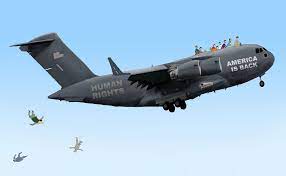The US withdrawal from Afghanistan in 2021 marked a significant turning point in the prolonged war that had lasted for two decades. The decision to pull out its troops had far-reaching implications for both Afghanistan and the international community.
The war in Afghanistan began in 2001, following the September 11 terrorist attacks on the United States. The US-led coalition aimed to dismantle Al-Qaeda and remove the Taliban regime, which had provided safe haven to the terrorist group. Over the years, the conflict evolved into a complex nation-building effort, with attempts to establish a stable Afghan government and promote democracy.
In 2021, the Biden administration announced its intent to withdraw all US troops from Afghanistan, stating that the original objectives had largely been achieved and that it was time for Afghans to take full responsibility for their country’s security. However, the withdrawal was marred by challenges. As US forces left, the Taliban rapidly gained ground, taking over provincial capitals and eventually seizing Kabul, the capital city.
The fall of Kabul in August 2021 led to chaotic scenes as Afghans and foreigners attempted to flee the country. The sudden collapse of the Afghan security forces, despite years of training and billions of dollars in assistance, raised questions about the effectiveness of the US efforts in building a sustainable Afghan state.
The withdrawal sparked debates about the legacy of the war and whether the gains made over the years would endure. Concerns were raised about the potential for Afghanistan to become a breeding ground for terrorism once again, as the Taliban regained control. The fate of Afghan women’s rights, education, and the progress made in various sectors also became subjects of international concern.
The US withdrawal from Afghanistan marked the end of America’s longest-running war, but it also highlighted the challenges of nation-building in a complex and fractured region. The situation underscored the delicate balance between military intervention and long-term stability, raising questions about the role of global powers in shaping the destiny of nations. As Afghanistan entered a new phase of uncertainty, the world watched closely to see how events would unfold and what lessons could be learned from this decades-long conflict.
newshub










Recent Comments